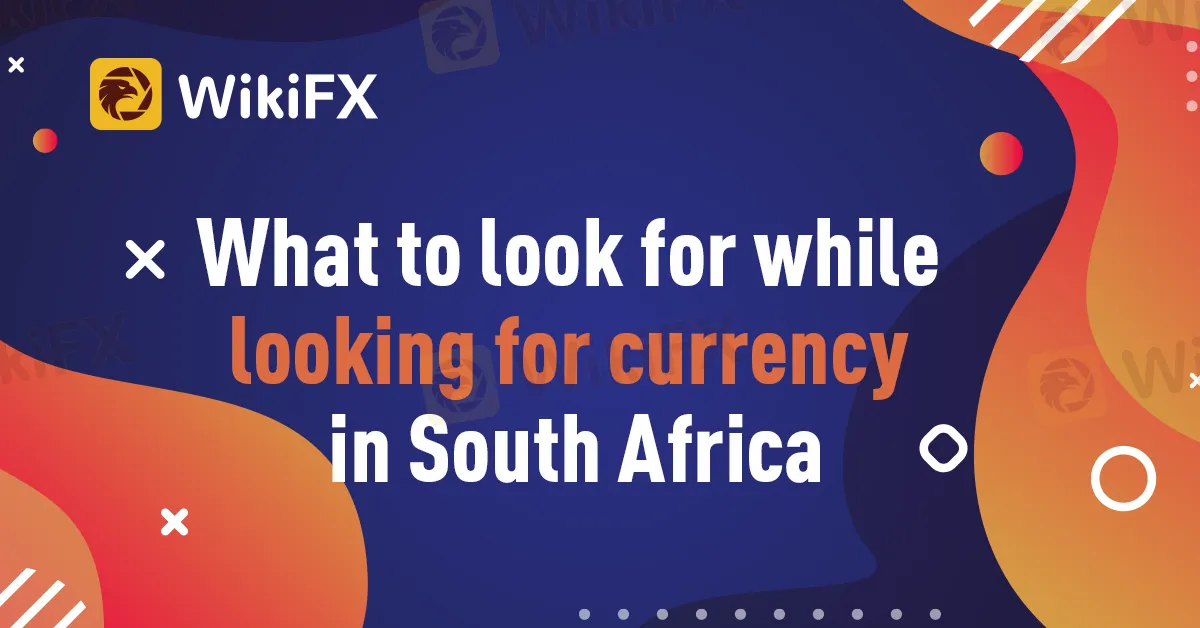简体中文
繁體中文
English
Pусский
日本語
ภาษาไทย
Tiếng Việt
Bahasa Indonesia
Español
हिन्दी
Filippiiniläinen
Français
Deutsch
Português
Türkçe
한국어
العربية
What to look for while looking for currency in South Africa
Abstract:Foreign exchange (forex) trading has long been a safe and reliable way to shore up capital; it just helps to know how to get started. However, given the controversy surrounding Robinhood and the rise of a new generation of investors short-selling GameStop options, it may not be as newsworthy as share trading.

Foreign exchange (forex) trading has long been a safe and reliable way to shore up capital; it just helps to know how to get started. However, given the controversy surrounding Robinhood and the rise of a new generation of investors short-selling GameStop options, it may not be as newsworthy as share trading.
The first thing to look for in forex trading is scams. Most traders get scammed right from the beginning, but they don't know about it. Nobody speaks about brokers scamming their clients. WikiFX allows traders to fight back and learn about these scams. The app or website analyses brokers and allows traders to make the right decisions.
'Lekker' may be local.
There is no shortage of global trading platforms, and during the past ten years, South Africa has developed into a major market for contracts for differences (CFDs), which are used in forex trading. In other words, investors can earn by accessing trading in the movement of different currencies throughout the world. One such wager that has existed in the nation for a long time and is expected to continue is the tumultuous battle between the US Dollar and the South African Rand.
All you need to trade large positions in CFDs is a device such a PC, laptop, tablet, or smartphone and an internet connection. CFDs are easier to access than the stock market. But where do I start? The “wheat from the chaff” may be easily separated by doing a comprehensive analysis of the results returned by the Google search terms “trading platforms South Africa.”
Take some time to sift through the pros and cons the many reviewers offer on the various platforms and take a considered position. Public Finance International, for example, rates eToro the overall best trading platform in South Africa, claiming it is “… great for both beginners and experienced investors alike … and features a broad range of trading strategies to copy. This includes cryptocurrencies, forex, and CFDs trading strategies”
It is an exciting moment to trade the markets.
The hefty trading costs for FX and CFDs on eToro is a disadvantage. Khwezi Trade, a local provider, takes pleasure in trading on all main currency pairs, as well as some minor ones, as well as commodities and all key indices. The firm has made the decision not to sell derivatives on shares and cryptocurrencies listed on the JSE. Seven commodities, eleven indices, forty different currency pairings, and basic trading may all be started for as little as R2 000.
Do not forget to download the wikiFX app on the Play Store or App Store. Also visit the website to understand the trading scmas in South Africa and throughout the world.

Disclaimer:
The views in this article only represent the author's personal views, and do not constitute investment advice on this platform. This platform does not guarantee the accuracy, completeness and timeliness of the information in the article, and will not be liable for any loss caused by the use of or reliance on the information in the article.
Read more

The Dollar Keeps Falling: How Should We View Exchange Rate Volatility?
The U.S. dollar continues to weaken, triggering ripple effects across global markets. Beneath the currency’s depreciation lies a deeper crisis in its credibility, institutional foundation, and global financial status.

Are Trading Courses and Mentors a Fast Track or a Financial Trap?
In recent years, trading has become more popular than ever. Social media is full of people showing off their “trading lifestyle” with expensive cars, luxury holidays, and promises of easy money. Many of them claim to be mentors, investment coaches, or run online trading academies. They say they can turn beginners into full-time traders in just a few weeks. But is it true, or is it just a clever scam?

Gold Prices Pull Back, Near Four-Week Low Amid Easing Risk Sentiment
As risk aversion fades and investors turn their attention to U.S. inflation data, gold prices retreat sharply, falling to their lowest levels in nearly a month.

The Shame of Being Scammed: Don't Ever Stay Silent
It often starts with a promise of fast profits, low risk, and a slick-looking platform that seems too good to ignore. Before long, your savings are gone, the website vanishes, and so does the person who convinced you to invest. What’s worse? You never tell a soul. Every year, countless people fall into the trap of fraudulent investment schemes, yet most never speak up. Why? And what does this silence mean for the rest of us?
WikiFX Broker
Latest News
Stablecoins go mainstream: Why banks and credit card firms are issuing their own crypto tokens
The Dollar Keeps Falling: How Should We View Exchange Rate Volatility?
Asia-Pacific markets mostly rise as investors parse a slew of data releases
Asia-Pacific markets rise as investors parse a slew of data releases
WikiFX Gala Night Malaysia Concludes Successfully
IG Group Unlocks Over £425 Million amid a Capital Reduction
Are Trading Courses and Mentors a Fast Track or a Financial Trap?
The Economy - And Its Future - In Four Charts
At 20 years old, Reddit is defending its data and fighting AI with AI
Debt is a growing force' influencing jobseekers' choices, career expert says. Here's how
Currency Calculator


